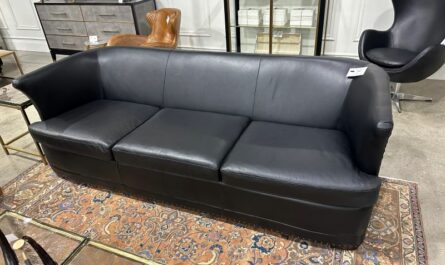Plaintiffs in case have until June 5 to respond to this motion while the US government has until June 9 . In the meantime, tariffs have been reinstated
NEW YORK — The U.S. Court of Appeals for the Federal Circuit has issued a stay that halts Wednesday’s blocking of tariffs by the U.S. Court of International Trade.
The court also has requested that the plaintiffs in the case respond to the motion in writing no later than June 5 and that the U.S. government respond by June 9.
The move means that the tariffs will be reinstated while the case proceeds through the court.
This follows a decision by the U.S. Court of International Trade on Wednesday that said the president overstepped his authority in imposing unlimited tariffs on most major countries in the world earlier this year.
A three-judge panel ruled that the U.S. Constitution instead assigns Congress the exclusive authority to impose and collect taxes and duties and to regulate commerce with foreign countries.
The judges also said that the court does not interpret that the president has the authority to use the International Emergency Economic Powers Act of 1977 to impose tariffs on other countries.
News reports Wednesday evening said that the president immediately appealed the decision.
However, the ruling aims to immediately halt tariffs imposed on most countries including China that have been in effect since early April, causing significant disruption to global trade. The final rates for the 30% tariffs on China currently were set to be finalized by early August and the 10% tariffs on most other countries by early July.
The panel’s ruling follows a challenge to the tariffs filed with the CIT earlier this spring by plaintiffs V.O.S. Selections Inc., Plastic Services & Products, Microkits, FishUSA and Terry Precision Cycling.
Their April 14 lawsuit challenged the president’s imposition of tariffs via executive order, noting that they would cause significant economic injury in the form of disruption to global trade and even the possible closure of their respective businesses. (Note: This is an argument that most furniture companies — suppliers and retailers alike that also depend on a global supply chain — could and should also argue in court.)
Citing a national emergency, the administration has used executive orders to impose tariffs in response to perceived threats that international drug trafficking and international cartels pose to the Western Hemisphere, “that has not only destabilized countries with significant importance for our national interests but also flooded the United States with deadly drugs, violent criminals and vicious gangs.”
The president also designated cartels and other groups as foreign terrorist organizations and declared a “national emergency at the southern border caused by cartels, criminal gangs, known terrorists, human traffickers, smugglers, unvetted military-age males from foreign adversaries and illicit narcotics that harm Americans.”
According to the ruling, the president also expanded the national emergency “to cover the threat to the safety and security of Americans, including the public health crisis of deaths due to the use of fentanyl and other illicit drugs, and the failure of Canada to do more to arrest, seize, detain or otherwise intercept [drug trafficking organizations], other drug and human traffickers, criminals at large and drugs.”
In addition, the ruling noted, the president expanded the national emergency “to cover the failure of the [People’s Republic of China] government to arrest, seize, detain or otherwise intercept chemical precursor suppliers, money launderers, other [transnational criminal organizations], criminals at large and drugs.”
Clearly, the threat of tariffs has applied pressure on various countries around the world to address such issues while also aiming to address various trade imbalances that the administration says are a threat to national security.
Perhaps more importantly, they convey a sense of bravado by the president, particularly through the use of hard-line, albeit unhinged, haphazard negotiation tactics that convey an unplanned one-day-on, one-day-off strategy to businesses and consumers alike.
The ruling noted that the government’s “pressure” argument “effectively concedes that the direct effect of the country-specific tariffs is simply to burden the countries they target. It is the prospect of mitigating this burden, the government explains, that will induce the target countries to crack down on trafficking within their jurisdictions. But however sound this might be as a diplomatic strategy, it does not comfortably meet the statutory definition of ‘deal[ing] with’ the cited emergency. It is hard to conceive of any IEEPA power that could not be justified on the same ground of ‘pressure.’”
The ruling went on to note that the government’s reading would cause the meaning of “deal with an unusual and extraordinary threat” to permit any infliction of a burden on a counterparty to exact concessions, regardless of the relationship between the burden inflicted and the concessions exacted.”
“If ‘deal with’ can mean ‘impose a burden until someone else deals with,’ then everything is permitted,” the ruling added. “It means a president may use IEEPA to take whatever actions he chooses simply by declaring them ‘pressure’ or ‘leverage’ tactics that will elicit a third party’s response to an unconnected ‘threat.’ Surely this is not what Congress meant when it clarified that IEEPA powers ‘may not be exercised for any other purpose’ than to ‘deal with’ a threat.”
In a conclusion to its 49-page ruling, the three-judge panel effectively said that “the retaliatory tariff orders exceed any authority granted to the president by the IEEPA to regulate importation by means of tariffs. … The challenged Tariff Orders and will be vacated and their operation permanently enjoined.”





I don’t get it!! Trump has totally disrupted the entire furniture industry in such a negative way and yet many of you including my close friends still believe he is a saint!!!
I believe that if he’s not stopped in his tracks soon by the Supreme Court, or the American public, the future of our industry will become nothing but a death knell. It could take 5 years or more if manufacturers cut all ties with suppliers outside Usa and produced all products here. Your customers won’t pay outrageous prices for that period. That means retailers and manufacturers will go out of business. Trump had turned his presidency with these tariffs into a sick game that’s going to backfire on the furniture industry. Until Trump sees the majority of Americans say enough is enough with his tariffs this will continue. The time is now to become vocal!! We might not get a second chance.